Space
Sign up for our newsletter
We summarize the week's scientific breakthroughs every Thursday.
-
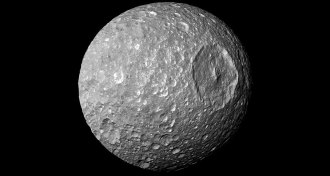 Planetary Science
Planetary ScienceSaturn’s ‘Death Star’ moon may not conceal ocean after all
A lack of cracks on Mimas suggests that the icy moon of Saturn doesn’t conceal a subsurface ocean of liquid water.
-
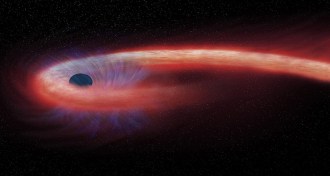 Astronomy
AstronomyBlack hole enjoys fantastically long stellar feast
A supermassive black hole about 1.8 billion light-years away has been gorging on the same star for a record-breaking decade.
-
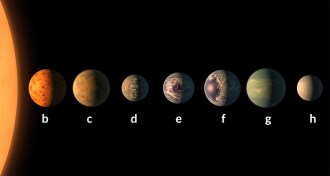 Astronomy
AstronomySeven Earth-sized planets orbit nearby supercool star
A planetary system called TRAPPIST-1 has seven Earth-sized planets, three in the habitable zone, researchers report.
-
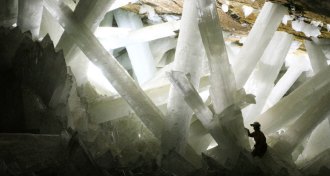 Microbes
MicrobesMicrobes survived inside giant cave crystals for up to 50,000 years
Microbes trapped in crystals in Mexico's Naica mine may represent some of the most distinct life-forms found in Earth so far.
-
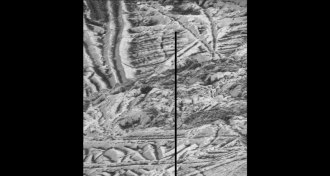 Planetary Science
Planetary ScienceEuropa lander mission takes another step toward reality
NASA is working on a possible lander mission in which the main science goal would be to search for signs of life on Jupiter’s moon Europa.
-
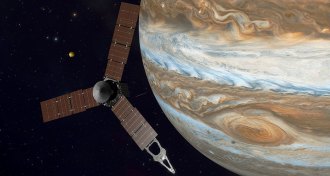 Planetary Science
Planetary ScienceJuno spacecraft won’t go into shorter orbit around Jupiter
Juno will remain in its 53-day orbit around Jupiter due to an issue with two helium check valves, NASA reports.
-
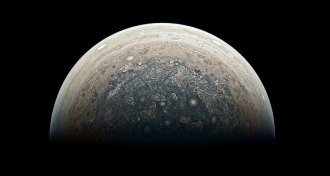 Astronomy
AstronomyCitizen scientists are providing stunning new views of Jupiter
A camera aboard NASA’s Juno spacecraft is giving citizen scientists a crack at discovering never-before-seen features of Jupiter.
-
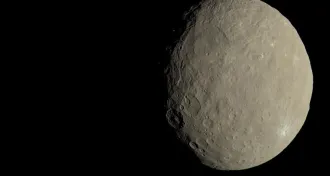 Planetary Science
Planetary ScienceCeres harbors homegrown organic compounds
NASA’s Dawn spacecraft has detected organic matter — the building blocks of life — on the dwarf planet Ceres, a new study suggests.
-
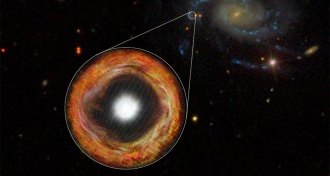 Astronomy
AstronomySupernova spotted shortly after explosion
Early observations of exploding star could indicate that stars become unstable as they near death.
-
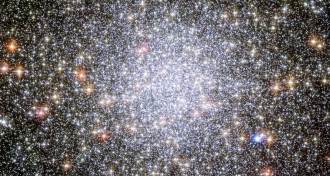 Astronomy
AstronomyMiddling black hole may be hiding in star cluster
A black hole with about 2,200 times the mass of the sun has been detected. If confirmed, it could represent a new type of gas-starved black holes and hint at how supermassive ones may form.
-
 Astronomy
AstronomySupernova story continues, just like science journalism
Acting Editor in Chief Elizabeth Quill discusses science's enduring legacy and that of Science News.
-
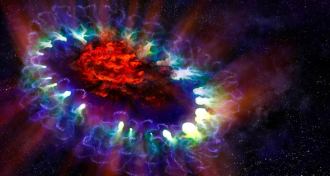 Astronomy
AstronomyObservers caught these stars going supernova
Thirty years ago, astronomers witnessed a nearby stellar explosion, but it wasn’t the first. Humanity has been recording local supernovas for nearly two millennia.